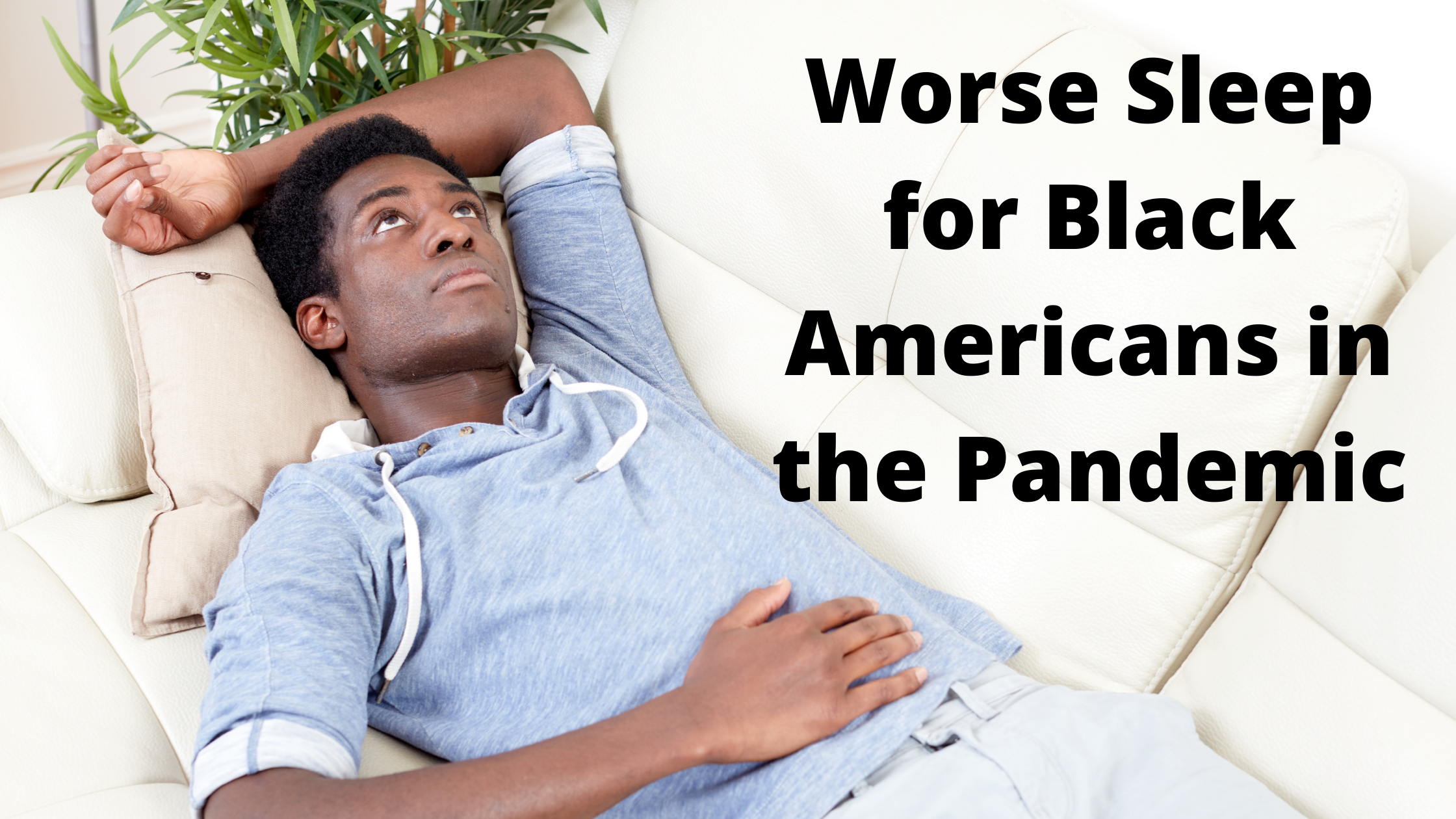
The pandemic has paved the way for many new lifestyle changes, some good, some bad. However, one of those bad changes has been sleep, specifically for Black Americans. They have experienced the worst sleep of all groups during the pandemic. Continue reading to find out more about this study, and what Black Americans can do to improve their sleep in spite of everything negatively impacting their efforts.
Insomnia
Insomnia is the inability to go to sleep and/or stay asleep despite efforts. This may mean that individuals with insomnia lay in bed trying to go to sleep, but for one reason or another, cannot. They may toss and turn, walk around, stay on their phone, or some other activity trying to induce sleep.
Insomnia can be either primary or secondary and acute or chronic. Primary insomnia is the inability to go to sleep due to no other cause than just having trouble falling asleep. Secondary insomnia is an inability to go to sleep due to some other identifiable cause like stomach pain, restless leg syndrome, depression/anxiety, etc. Acute insomnia is short-term and chronic insomnia is long term. With all four characteristics, insomnia can be classified into the following groups:
- Acute primary insomnia
- Acute secondary insomnia
- Chronic primary insomnia
- Chronic secondary insomnia
Sleep deprivation
Sleep deprivation happens when people don't reach their recommended 7-8 hours of sleep. The brain needs adequate hours of rest in order to work properly. Without sleep, it is very difficult to concentrate, regulate mood and emotions, and do anything above the baseline of survival. It can cause trouble in relationships, at work, and with doing daily tasks like driving. In fact, sleep deprived drivers have the same cognitive function as drunk drivers.
Acute insomnia is unlikely to lead to severe sleep deprivation. You may experience excessive daytime sleepiness for a few days, but other than fatigue, you are unlikely to experience some of the severe side effects of sleep deprivation. Chronic insomnia is more likely to cause severe sleep deprivation that can cause some of the other side effects such as heart disease, anxiety and depression, and other negative adjustments that comes with a lack of sleep.
Due to these reasons, it's very important that if someone experiences sleep deprivation and insomnia, that the cause is addressed very quickly.
Black adults and insomnia during the pandemic
During the pandemic, one particular demographic had a major adjustment to their sleep. Black Americans experienced the worst sleep changes during the pandemic. They were 4.2 times more likely to develop severe insomnia symptoms than White adults during the pandemic. There were no racial differences in insomnia detected acutely following insomnia treatment, Black participants reported more severe insomnia symptoms during the pandemic attributed to the pandemic.
Black Americans have also been negatively impacted during the pandemic with increased racial discrimination and the COVID-19 pandemic's impact on their routines, income, employment, access to food, medical care and mental treatment, access to social support, familial stress, and diagnoses and severity of COVID-19 in their family and social networks.
Tips for improving sleep
No amount of meditation or relaxation techniques can reduce the burden of racism and racial disparities. However, it's important to try and regulate stress levels to the best of one's ability. This can be achieved by finding communities of support, spiritual practices, and stress management techniques that work for you and your situation.
It can also be helpful to find sleep routines or night routines that can help regulate sleep. These include activities that help to wind down after a long day like stretching, spending time with family, reading, and praying or meditating. By doing the same routine everyday, you can train your mind and body to tell when it's time to go to bed so the sleep process can be a bit easier. Maintain the same sleep and wake time to also help regulate the release of sleep hormones and help to manage your sleep schedule.
If all else fails, then it may be time to talk to a sleep professional who can help you overcome sleep problems. Click the orange button below to take a free online sleep test and talk with a sleep professional today.
https://www.sleepfoundation.org/sleep-news/study-reports-structural-inequity-impact-on-insomnia-covid-19

